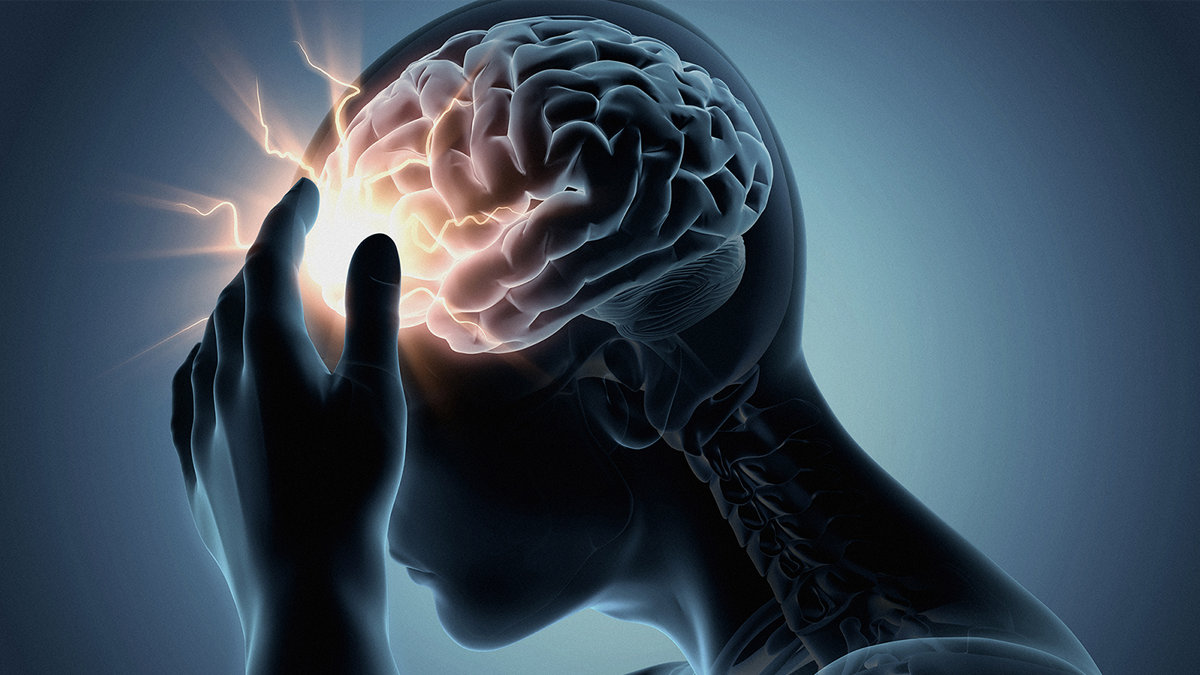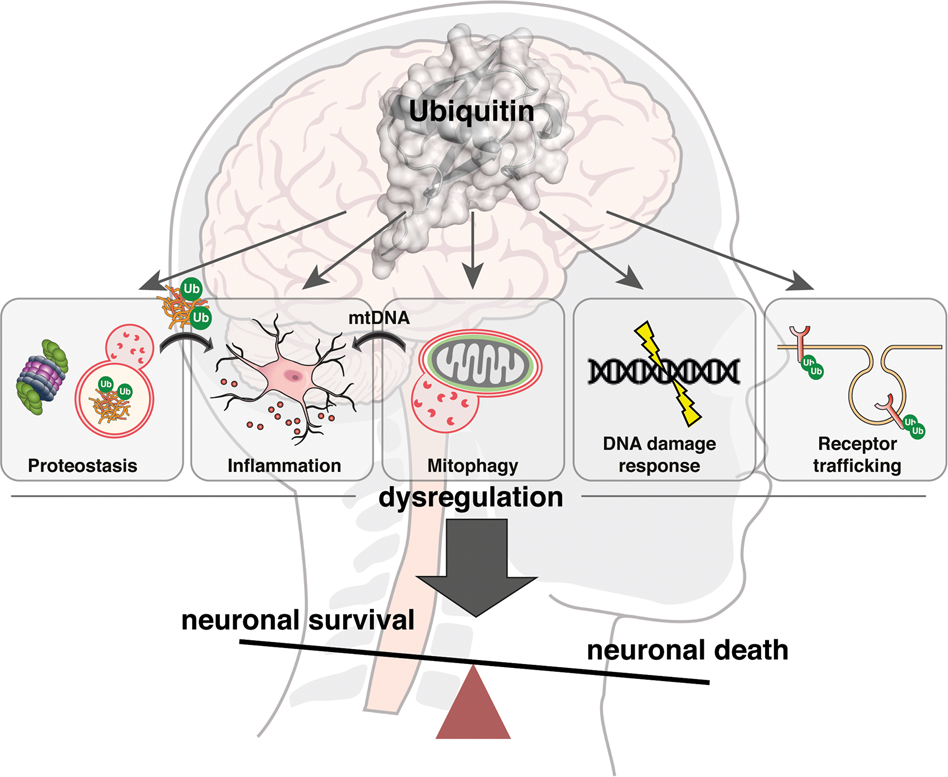
Figure 1 [1]
Your brain is like a smartphone, dropping it, similar to a traumatic brain injury (TBI). It may look fine on the outside, but on the inside, the technology is malfunctioning and the systems are no longer syncing properly. After a concussion, the brain experiences an “energy crisis,” trying to fix itself while running low on battery. Key signals get scrambled, causing people to feel dizzy, slow, or sensitive to light and sound. Worse, if another concussion happens too soon after the first it causes the brain to become more vulnerable to long term injury. [2]
The human body has intricate mechanisms to maintain balance and keep cells functioning properly. One of these is the Ubiquitin-Proteasome System (UPS) – a crucial process responsible for breaking down damaged or misfiled proteins. When this system is disrupted, harmful proteins accumulate, leading to various neurodegenerative conditions.[3]
The Role of UPS in the Brain
The UPS is essentially the body’s “garbage disposal” for proteins. It ensures that faulty proteins are identified, tagged with ubiquitin molecules, and sent to the proteasome for degradation. This process helps maintain normal cell function and prevents toxic buildup. However, when UPS function is impaired – especially following a TBI – serious consequences can arise.[3]

Figure 2 [4]
How UPS Dysfunction Contributes to Neurodegeneration
1. TBI and UPS Breakdown
TBI can significantly impair the proteasome’s efficiency, leading to the accumulation of damaged proteins. This can contribute to long-term neurodegenerative processes through several mechanisms:
- Proteasome Impairment – TBI reduces proteasome activity, allowing harmful protein aggregates to build up. These aggregates are a hallmark of diseases like Alzheimer’s and Parkinson’s.
- Oxidative Stress – The brain undergoes oxidative stress after a TBI, which damages the proteasome and diminishes its ability to clear out toxic proteins.
- Neuroinflammation – Excess glutamate release after a TBI leads to increased calcium levels in neurons, disrupting the function of enzymes essential for UPS operation.
2. UPS Dysfunction and Neurodegenerative Diseases
When the UPS function is compromised, the brain struggles to clear out harmful proteins like tau, amyloid-beta, and alpha-synuclein – which are associated with Alzheimer’s, Parkinson’s, and other neurodegenerative diseases.
- Chronic Traumatic Encephalopathy (CTE) – This condition, often found in athletes and military personnel exposed to repeated TBIs, is linked to an accumulation of abnormal tau proteins, partly due to UPS failure.
- Mitochondrial Damage – The UPS plays a role in maintaining healthy mitochondria. When it fails, defective mitophagy (the removal of damaged mitochondria) can increase the risk of neuronal cell death.
- Synaptic Dysfunction – The UPS regulates synaptic plasticity by degrading unnecessary synaptic proteins. When disrupted, memory deficits and cognitive decline – characteristic of Alzheimer’s – can occur.

Figure 3[5]
Potential Therapeutic Strategies
Given the critical role of the UPS in preventing neurodegeneration, researchers are exploring ways to enhance its function. Some promising approaches include:
- Proteasome Activators – These drugs aim to boost UPS activity, helping clear toxic proteins before they accumulate. Specifically, Benzamil.
- Ubiquitin Ligase Modulation – Targeting E3 ligases, enzymes that tag proteins for degradation, may help enhance the clearance of harmful proteins and offer neuroprotection.
- Antioxidant Therapy – Since oxidative stress can damage the UPS, using antioxidants to restore cellular redox balance may prevent neurodegeneration after TBI.
The Ubiquitin-Proteasome System is vital for brain health, but when disrupted – especially following a TBI – it can set the stage for serious neurodegenerative diseases like Alzheimer’s and Parkinson’s, scientists can develop targeted therapies to restore its function and protect the brain. Research into proteasome activators, ubiquitin ligase modulation, and antioxidant strategies offer hope for preventing and treating neurodegenerative diseases in the future.
References
[1]Centers for Disease Control and Prevention. (n.d.). About mild TBI and concussion. Centers for Disease Control and Prevention. https://www.cdc.gov/traumatic-brain-injury/about/index.html
[2]Giza CC, Hovda DA. The new neurometabolic cascade of concussion. Neurosurgery. 2014 Oct;75 Suppl 4(0 4):S24-33. doi: 10.1227/NEU.0000000000000505. PMID: 25232881; PMCID: PMC4479139.
[3]Rao, G., Croft, B., Teng, C., & Awasthi, V. (2015). Ubiquitin-Proteasome System in neurodegenerative disorders. Journal of Drug Metabolism & Toxicology, 06(04):187. doi: 10.4172/2157-7609.1000187. PMID: 30761219; PMCID: PMC6370320.
[4]Schmidt, M. F., Gan, Z. Y., Komander, D., & Dewson, G. (2021, January 7). Ubiquitin signalling in neurodegeneration: Mechanisms and therapeutic opportunities. Nature News. https://www.nature.com/articles/s41418-020-00706-7
[5]Wikimedia Foundation. (2025, February 9). Chronic traumatic encephalopathy. Wikipedia. https://en.wikipedia.org/wiki/Chronic_traumatic_encephalopathy